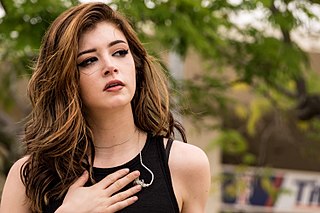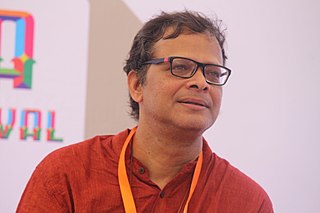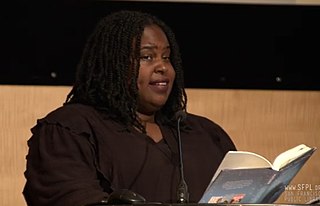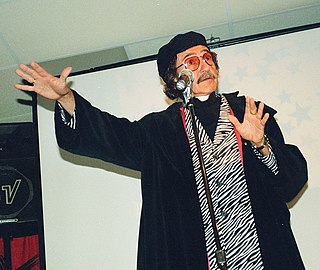A Quote by Fran Lebowitz
When I was very little, say five or six, I became aware of the fact that people wrote books. Before that, I thought that God wrote books. I thought a book was a manifestation of nature, like a tree. When my mother explained it, I kept after her: What are you saying? What do you mean? I couldn't believe it. It was astonishing. It was like--here's the man who makes all the trees. Then I wanted to be a writer, because, I suppose, it seemed the closest thing to being God.
Related Quotes
One wouldn't want to say that what makes a good writer is the number of books that the writer wrote because you could write a whole number of bad books. Books that don't work, mediocre books, or there's a whole bunch of people in the pulp tradition who have done that. They just wrote... and actually they didn't write a whole bunch of books, they just wrote one book many times.
Until I was about 7, I thought books were just there, like trees. When I learned that people actually wrote them, I wanted to, too, because all children aspire to inhuman feats like flying. Most people grow up to realize they can't fly. Writers are people who don't grow up to realize they can't be God.
Sometimes I'll say, "I wrote that book," and the person will look at you as if you're really strange. One time that happened to my daughter on a plane. She was sitting next to a girl who was reading one of my books and my daughter said, "My mother wrote that book." And the girl started to quiz my daughter, asking her all sorts of questions, like what are the names of Judy's children and where did she grow up. My daughter thought it was so funny.
I believe in books. And when our people [coughing] - our people of Jerusalem, let's say after the Romans destroyed the temple and the city, all we took is a little book, that's all. Not treasures, we had no treasures. They were ransacked, taken away. But the book - the little book - and this book produced more books, thousands, hundreds of thousands of books, and in the book we found our memory, and our attachment to that memory is what kept us alive.
Our house was littered with books- in the kitchen, under the beds, stuck between the couch pillows--far too many for her the ever finish. I suppose I thought if my grandmother kept up her interests, she wouldn't die; she'd have to stay around to finish the books she was so fond of. "I've got to get to the bottom of this one," she'd say, as if a book were no different from a pond or a lake. I thought she'd go on reading forever but it didn't work out that way.
When I was fifteen I wrote seven hundred pages of an incredibly bad novel - it's a very funny book I still like a lot. Then, when I was nineteen I wrote a couple hundred pages of another novel, which wasn't very good either. I was still determined to be a writer. And since I was a writer, and here I was twenty-nine years old and I wasn't a very good poet and I wasn't a very good novelist, I thought I would try writing a play, which seems to have worked out a little better.
Anne Wiazemsky wrote two books about her life with Jean-Luc Godard between 1966 and 1969. And I first read the second one, which is about the fall of their love story and their marriage. I immediately thought there was a movie to make with this book because it was so funny, and I thought the love story was very, very touching.
I didn't go to bookshops to buy. That's a little bourgeois. I went because they were civilized places. It made me happy there were people who sat down and wrote and wrote and wrote and there were other people who devoted their lives to making those words into books. It was lovely. Like standing in the middle of civilization.
Some people, in order to discover God, read books. But there is a great book: the very appearance of created things. Look above you! Look below you! Read it. God, whom you want to discover, never wrote that book with ink. Instead, He set before your eyes the things that He had made. Can you ask for a louder voice than that?































